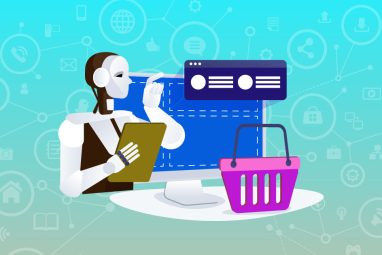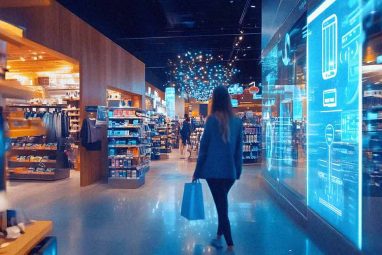Connected Devices Will Drive Connected Customer Experiences
Is the future of customer experience already here? Imagine augmented reality bringing Dubai Mall into your homes. Chatbots are intuitively conversational. 3D Printing is delivering customised and locally made goods. Mobile & wearable devices are becoming embeddable. Biometric and embedded payment systems will become mainstream. From mobile phones to smart home assistants, consumers have embraced […]
Topics

Is the future of customer experience already here? Imagine augmented reality bringing Dubai Mall into your homes. Chatbots are intuitively conversational. 3D Printing is delivering customised and locally made goods. Mobile & wearable devices are becoming embeddable. Biometric and embedded payment systems will become mainstream.
From mobile phones to smart home assistants, consumers have embraced technology. According to Futurum Research, more than 37% of consumers in the US have three or more mobile phones in their home. 35% of households have two or more smart devices – Alexa, Google Home. 13 per cent of households have three or more wearable devices. 39% of households have purchased an augmented or virtual reality device. 29% of consumers use three or more banking, finance, or payment apps. These are trends that are pretty visible to marketers in the Middle East too. Technologies like Edge Computing, Cloud, IoT, and Blockchain enable trusted and transparent transactions and enable a single source of record to create a customised customer experience.
Technologies like smart speakers, digital signage, VR, beacons, and wearable devices are all providing huge opportunities to drive great engagement stories with AI-enabled experiences in-store and even in homes and vehicles.
Also Read: 11 Digital Trends Shaping CX and Marketing in 2020
Connected devices and technology will develop a richer experience with a brand, also making the product features more accessible. Brands will have to invest in technologies that will elevate the consumer experience to a new level. Personal technology, such as wearables, smartphones, and embedded smart assistants, will play a significant role in how brands engage with consumers.
We are slowly but surely moving computing to the edge to drive real-time insights on consumer behaviour and needs. These technologies will capture and leverage behavioural insights to provide immersive customer experiences from wearable devices to embedded technology to augmented reality. Smart technologies like AI, ML and predictive analytics are already providing intelligence to scale data insights, enabling just in time conversations and adding context to real-time consumer experiences online and in person. As sensors and IoT devices increase in sophistication, brands will have the ability to engage almost continuously or on-demand with consumers and that too, with real-time data at their disposal. This shared data between consumers and brands will only enhance the single customer view and customer experience.
The growing popularity of smart voice assistants like Alexa, Google Home, and Siri also gives brands a new way to interact with their customers. Many brands have developed “skills” for Amazon’s Alexa virtual assistant platform. Fitness fanatics can use Alexa skills to create a workout or plan a healthy meal, while those more inclined toward watching a movie can use Alexa to request a movie on Amazon Prime. Wearable technology ranges from visual overlays on eyewear to audio information on Bluetooth headsets to smartwatches that can monitor anything from the wearer’s heart rate to their investment portfolio. As the capabilities of wearables grow, the opportunities to incorporate them into an omnichannel marketing approach also multiply. For example, wearables can gather data on a user’s in-store experience like the items they browse, the time they spend in a store, or the average value of their items, and deliver relevant messages and enhance the personalised experience driving customer delight.
Also Read: AI Powered Personalisation Will Have a Big Impact On Marketing
From smartwatches to smart refrigerators to smart toothbrushes to smart diapers to smart coffee makers – every one of them will provide an opportunity to improve customer experience. Brands will not just get a clearer picture of the consumer’s journey; they will also be able to understand how products are being used, which features are most relevant, how the brand fits into the connected devices ecosystem, and more importantly, what are the other products and services that can be sold.
Connected devices will change the role of marketing. Brands and products will become channels. A new way of thinking for Marketers will be the order of the day. Marketers will have to evolve as people, devices, and digital infrastructure gets connected.









































































































